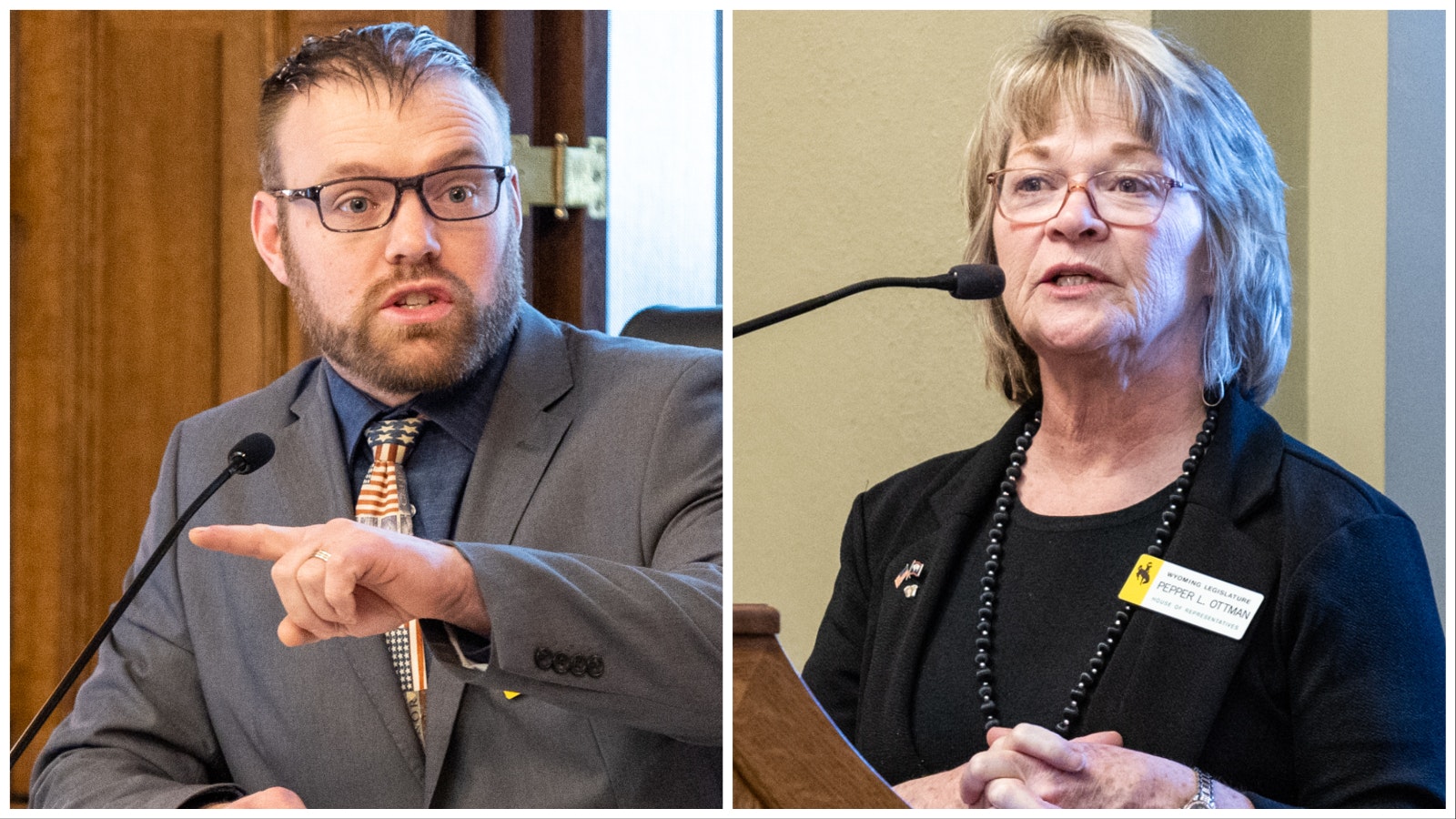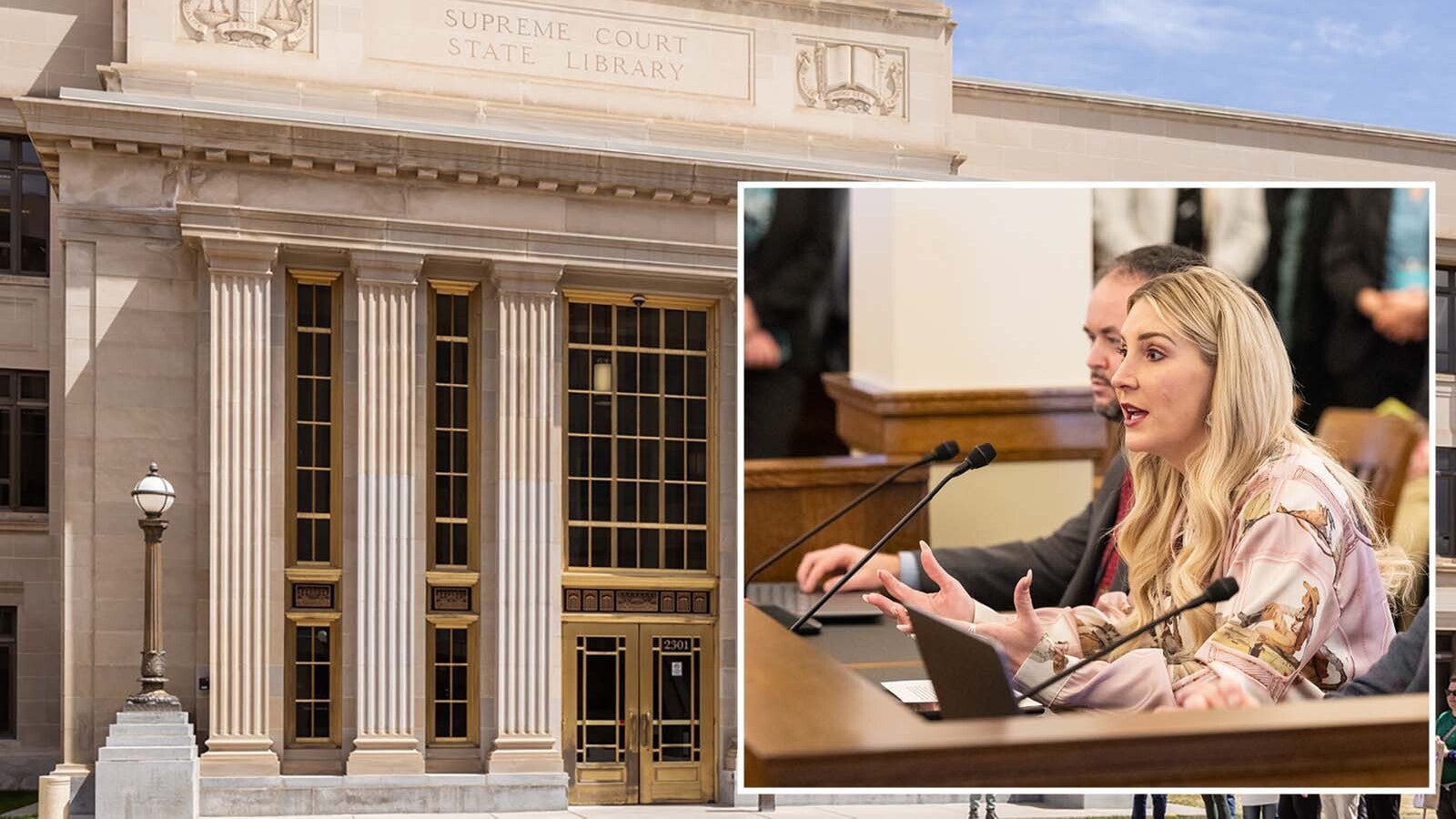Earlier this week, Gov. Mark Gordon derided members of the Wyoming State Legislature who voted against establishing a trust fund to support the state’s two 988 suicide call centers this year. He said those that don’t believe these mental health providers don’t make a difference are “full of beans.”
A few Wyoming Freedom Caucus legislators Cowboy State Daily spoke with this week said they have strong reasons for their votes. Some desire to see funding determined for the call centers on a biennium basis. Others wanted to see more evidence that the call centers and government involvement in the problem is effective.
A bill was proposed during the 2023 Legislature to set up a $46 million trust fund to permanently support the call centers.
All of the funding was removed from the trust fund, yet 23 members of the State House still voted against creating the unfunded trust account.
The trust fund account still passed into law with Gordon’s signature.
Trust Funds And Coffee Cans
State Rep. Chris Knapp, R-Gillette, said it was the establishment of this trust fund that gave him pause, in his mind, the creation of another governmental “coffee can.”
Knapp said he would have rather seen the funding of the call centers come from an existing savings account that bears a higher rate of interest return than a newly created trust fund.
“It’s very important to me that things stay in the budget because that suicide hotline will be looked at and funded in the regular budget,” he said.
Knapp said when it comes to suicide prevention and mental health services, “every little bit helps” and they are always of value.
“It wasn’t about the hotline itself,” he said. “We’re all touched by somebody who’s passed because of a suicide,” he said. “Everybody is touched by suicide.”
Rep. Daniel Singh, R-Cheyenne, said he wants to see more data on the call centers before devoting funds to them. For many of the 13 freshmen who voted against setting up the trust fund, Singh said, it was a matter of learning more about the call centers and their effectiveness rather than opposing them on face value.
“All of us really wanted to get some experience with these topics before throwing such a large amount of money at that,” he said.
Role Or No Role?
The tragedy of suicide is a very emotional topic for Speaker of the House state Rep. Albert Sommers, R-Pinedale, who lost a cousin to suicide a few years ago that was also a close childhood friend. Sommers broke down when discussing the topic during the Governor’s Mental Health Summit on Tuesday.
The Speaker supported the trust fund bill and said he liked the idea of having a targeted account for these facilities.
“Is it the only tool in the toolbox? No,” he told Cowboy State Daily on Friday. “But it’s one of the really good intervention services that we can do. It’s still worth the effort to do.”
Wyoming has the highest per capita suicide rate in the country. Since being established in 2020, the state’s two suicide call centers have received around 10,000 calls. Preliminary numbers show that suicides dropped by about 20% last year after a slight decrease in 2021 as well. The call centers now offer 24/7 service.
Sommers said it is the role of government to play a role in suicide prevention, which he sees as an extension of mental health services. He brought up the success of Safe2Tell Wyoming program, which provides the state a confidential school and student safety tip line to report safety concerns or threats of violence.
“I’m convinced that these services have saved lives,” Sommers said.
Role Of Government
Rep. Jeremy Haroldson, R-Wheatland, disagreed with Sommers. Haroldson doesn’t believe it’s the role of government to weigh in the field of suicide prevention. A pastor, Haroldson has held services for those who took their own life, an experience he describes as one of the hardest things he’s ever had to do.
“Do I wish it (suicide call centers) to work? Absolutely, I wish it was that simple,” he said. “I just worry that if we’re not careful, we’ll be picking the flowers off the dandelion before digging the weed up.”
In a guest column for Cowboy State Daily, Rep. Pepper Ottman, R-Riverton, expressed similar feelings.
"Money alone will not solve the problem of suicide," Ottman said. "Government cannot fix all societal problems."
She further expressed annoyance with Gordon's condemnation of legislators who voted against the bill.
"To insinuate to someone impacted by suicide that had they simply paid a little more in taxes, they wouldn’t have suffered the loss that they suffered is more than deeply offensive, and displays a fundamental misunderstanding of mental health and wellness," Ottman wrote.
The topic of what role the government should play in mental health will be discussed at length during the Legislature’s newly created Mental Health and Vulnerable Adults Task Force this summer.
Haroldson believes the issue of suicide is much bigger than the two call centers can solve but said he will study their call data further before making a decision about dedicating funding to the facilities.
Permanent vs. Temporary
The call centers are currently funded through 2024. After the current biennium ends on July 1, they will be funded by solely federal dollars through the end of next year.
“Readers should note that the 988 Hotline is a national hotline supported overwhelmingly by federal dollars, is available 24/7, and that the Biden Administration one year ago increased ongoing federal funding for it twelve -fold,” Ottman said.
“This is where most Wyomingites start to raise their eyebrows. What have these federal dollars brought to the 988 Hotline?”
There is no guarantee the federal government will continue offering funds for these call centers into the future, which could leave the state fully responsible for funding them in the future. President Joe Biden’s administration has announced it is increasing support by $408 million for suicide call centers around the nation, but it has not been said whether Wyoming will receive any of that money.
Knapp said he does support the concept of the call centers and believes they will receive funding from the state in the future. He wants this funding to be delivered on a more piecemeal and frequent basis than a trust fund would allow.
“I just believe that setting money aside that we know is going to be spent in the future, we can set it aside in higher interest-bearing accounts,” he said. “Instead of coffee cans I’d like to see coffee barrels.”
The purpose of the trust fund was to provide a permanent source of funding for the call centers.
“These things are really good for the state of Wyoming,” Sommers said. “When you have a surplus, you can put money away and target it to set up a structure where it’s capturing money for the future.”
Without a trust fund, funding for the call centers depends on elected officials making it a priority in the future and how much money is available. Wyoming is known for boom-and-bust economic cycles.
Under the terms of the House Bill 65, legislation that established the trust fund, support for the trust fund and the call centers is to come from the Wyoming Department of Health’s budget.
Leo Wolfson can be reached at: Leo@CowboyStateDaily.com





